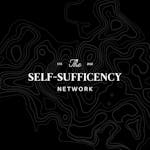Understanding the Planet:
To truly appreciate the significance of sustainable living, we must first understand the intricate web of life on Earth. Our planet is a complex system of interconnected ecosystems, where every organism plays a vital role. From the tiniest microorganisms to the majestic forests and vast oceans, each component contributes to the delicate balance that sustains life.
The Challenges We Face:
Over the past century, our rapid technological advancements and insatiable consumption patterns have strained the planet's resources. Climate change, deforestation, pollution, and the depletion of natural resources are just a few of the challenges we face. These issues threaten not only the well-being of our planet but also the future of humanity.
Living Sustainably:
Living sustainably means meeting our present needs without compromising the ability of future generations to meet their own needs. It involves making conscious choices that reduce our ecological footprint and promote the well-being of the planet. Here are some key principles to consider:
Conservation and Efficiency: We must strive to use resources wisely and efficiently. This includes reducing energy consumption, conserving water, and minimizing waste through recycling and composting.
Renewable Energy: Transitioning from fossil fuels to renewable energy sources such as solar, wind, and hydro power is essential. Embracing clean energy technologies can help mitigate climate change and reduce our dependence on finite resources.
Responsible Consumption: We need to reevaluate our consumer habits. Supporting local, sustainable businesses, buying ethically produced goods, and reducing our overall consumption can minimize our impact on the environment.
Protecting Biodiversity: Preserving and restoring biodiversity is crucial. We must protect ecosystems, halt deforestation, and support conservation efforts to ensure the survival of countless plant and animal species.
Sustainable Agriculture: Promoting sustainable farming practices, such as organic farming and agroforestry, can help protect soil health, reduce pollution, and ensure food security for future generations.
Education and Advocacy: Education is vital in creating a sustainable future. By spreading awareness, promoting environmental literacy, and advocating for policy changes, we can inspire collective action and empower individuals to make a difference.
The Benefits of Sustainable Living:
Embracing sustainable living is not only an obligation but also an opportunity for positive change. By adopting sustainable practices, we can create a healthier, more equitable world. Benefits include:
Environmental Stewardship: Sustainable living promotes the preservation of natural resources and ecosystems, helping to mitigate climate change and safeguard the planet for future generations.
Improved Health and Well-being: By prioritizing clean air, water, and nutritious food, sustainable living enhances our overall well-being and reduces the risks of pollution-related health issues.
Economic Opportunities: The transition to a sustainable economy can generate new jobs and foster innovation. Investments in renewable energy, green technologies, and sustainable practices can drive economic growth.
Resilience and Adaptation: By reducing our ecological impact, we increase our resilience to environmental challenges. Sustainable practices help communities adapt to changing climates and minimize the impact of natural disasters.
Conclusion:
Our planet is a magnificent gift that we must cherish and protect. By embracing sustainable living, we have the power to reverse the damage we have inflicted and create a brighter future. Let us remember that every small

Home | Privacy Policy | Disclosure | Terms of Service | DMCA | Contact
The Self-Sufficiency Network Copyright © 2023
A Word About Our Planet
By The Self-Sufficiency Network
Our planet, Earth, is a remarkable place—a delicate blue gem suspended in the vastness of the universe. It is our only home, providing us with the air we breathe, the water we drink, and the resources we need to survive. However, our actions have pushed the planet to the brink of ecological crisis. The good news is that it's not too late to reverse the damage. By embracing sustainable living, we can nurture and protect our planet for future generations.
Filled Under: Sustainable Living
